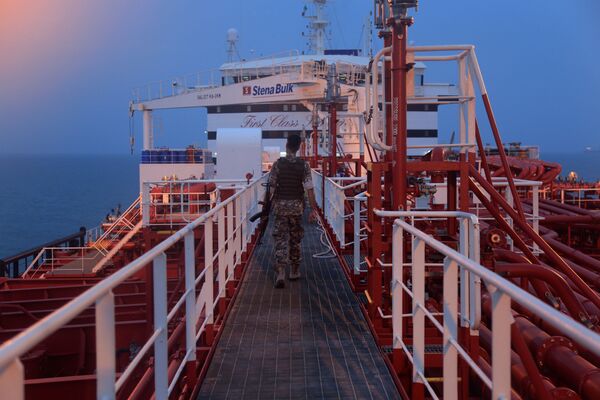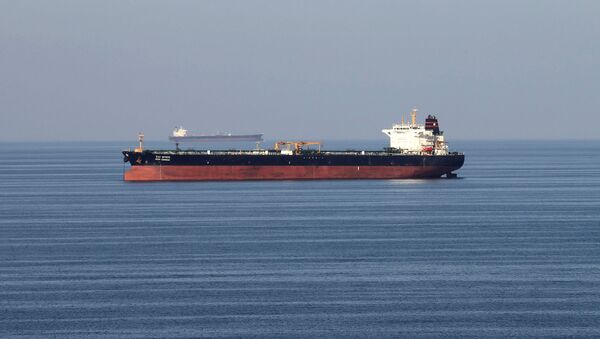China may emerge as an unexpected beneficiary of the mounting tensions in the Persian Gulf, after Iran detained a British-flagged oil tanker in a key waterway for oil transit.
British maritime intelligence firm Dryad Global believes that the shipping industry “was not really prepared” for this situation, and that shipping companies are now starting to look for alternatives to using British-flagged vessels in the region.
"Normally it's the British-flagged, US-flagged and Saudi-interest vessels that are the most likely to be targeted," Philip Diacon, head of Dryad Global, told AFP news agency.
Diacon said most of his clients were now looking to register their ships under the flag of China, Iran’s strategic ally. "We are starting to see talk of moving to Chinese-flagged vessels," he noted.
Over 18 million barrels of crude oil pass through the Strait of Hormuz each day – a third of all oil shipped by sea and a fifth of the world’s supply – and won’t stop, however volatile the political situation.
"Oil will continue to flow,” Diacon highlighted. “The Iranians have no interests in disrupting other nations."
Recording of the Confrontation
Over the weekend, his company released the recording of the moment when Iranian maritime forces radioed warnings to the British tanker, the Stena Impero.
According to the audio, an Iranian patrol vessel told the Stena to alter course, presumably after it collided with an Iranian fishing boat whose distress calls it ignored.
But the HMS Montrose, the British frigate patrolling the area, told the tanker that it “must not be impaired, impeded, obstructed or hampered”, since it was passing through a recognised international strait.

Tehran said that the tanker turned off its communications and ignored the warnings, whereafter it was seized and taken to a port in Iran pending an investigation.
The HMS Montrose was a little bit too late to intervene, as it arrived at the scene when the tanker was already in Iran’s territorial waters (according to the UK and the ship’s owners, the Stena Impero was inside Omani territorial waters prior to the detention).
The HMS Montrose "really didn't have much chance of having an impact on the scene," Philip Diacon said.
He refused to explain how his firm obtained the audio, but said the exchange was conducted over Channel 16, designated as an international distress frequency.
'Caught by Surprise'
The crisis unfolded at a time of changing political leadership in the UK. Admiral Lord West, the former chief of the Royal Navy, has argued that it “has developed as the eyes of our political establishment have been focused on the election of a new prime minister.”
Diacon agreed that "this obviously did, to an extent, catch the UK by surprise".
Jeremy Hunt on Monday called for a European-led naval mission to protect shipping through the Strait of Hormuz. He promised that it “will not be part of the US maximum pressure policy on Iran because we remain committed to preserving the Iran nuclear agreement."
At the same time, the UK is reportedly looking to bolster its military presence in the area to ensure safety for its ships. The HMS Duncan, a Royal Navy Type 45 destroyer, is on her way to the Persian Gulf, while plans have reportedly been made to dispatch a nuclear-powered submarine to intercept Iranian communications.
Hunt insists that the Stena Impero was "in full compliance with international law", while Iran claims it had violated maritime regulations.
Tehran officials have also framed the seizure as a tit-for-tat response to the recent detention of an oil tanker suspected of attempting to smuggle Iranian oil to Syria in circumvention of EU sanctions. Iran has denied any wrongdoing and is demanding for the vessel to be released; it also vowed that the arrest wouldn't be left unanswered.


